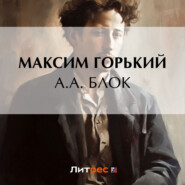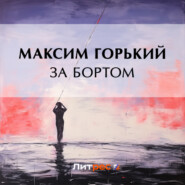По всем вопросам обращайтесь на: info@litportal.ru
(©) 2003-2025.
✖
The Man Who Was Afraid
Настройки чтения
Размер шрифта
Высота строк
Поля
“You are still but floating on the surface, dear. You are still but a child. Eh! Eh!”
“We scared an owl in the ravine,” related the boy. “That was fun! It began to fly about and struck against a tree – bang! It even began to squeak so pitifully. And we scared it again; again it rose and flew about here and there, and again it struck against something, so that its feathers were coming out. It flew about in the ravine and at last hid itself somewhere with difficulty. We did not try to look for it, we felt sorry it was all bruised. Papa, is an owl entirely blind in daytime?”
“Blind!” said Ignat; “some men will toss about in life even as this owl in daytime. Ever searching for his place, he strives and strives – only feathers fly from him, but all to no purpose. He is bruised, sickened, stripped of everything, and then with all his might he thrusts himself anywhere, just to find repose from his restlessness. Woe to such people. Woe to them, dear!”
“How painful is it to them?” said Foma in a low voice.
“Just as painful as to that owl.”
“And why is it so?”
“Why? It is hard to tell. Someone suffers because he is darkened by his pride – he desires much, but has but little strength. Another because of his foolishness. But then there are a thousand and one other reasons, which you cannot understand.”
“Come in and have some tea,” Anfisa called to them. She had been standing in the doorway for quite a long while, and, folding her hands, lovingly admired the enormous figure of her brother, who bent over Foma with such friendliness, and the pensive pose of the boy, who clung to his father’s shoulder.
Thus day by day Foma’s life developed slowly – a quiet, peaceful life, not at all brimful of emotions. Powerful impressions, rousing the boy’s soul for an hour or for a day, sometimes stood out strikingly against the general background of this monotonous life, but these were soon obliterated. The boy’s soul was as yet but a calm lake – a lake hidden from the stormy winds of life, and all that touched the surface of the lake either sank to the bottom, stirring the placid water for a moment, or gliding over the smooth surface, swam apart in big circles and disappeared.
Having stayed at the district school for five years, Foma passed four classes tolerably well and came out a brave, dark-haired fellow, with a swarthy face, heavy eyebrows and dark down on the upper lip. His big dark eyes had a naive and pensive look, and his lips were like a child’s, half-open; but when meeting with opposition to his desires or when irritated by something else, the pupils of his eyes would grow wide, his lips press tight, and his whole face assume a stubborn and resolute expression. His godfather, smiling sceptically, would often say to him:
“To women, Foma, you’ll be sweeter than honey, but as yet not much common sense can be seen in you.”
Ignat would heave a sigh at these words.
“You had better start out your son as soon as possible.”
“There’s time yet, wait.”
“Why wait? He’ll go about the Volga for two or three years and then we’ll have him married. There’s my Lubov.”
Lubov Mayakina was now studying in the fifth class of some boarding school. Foma often met her on the street at which meeting she always bowed condescendingly, her fair head in a fashionable cap. Foma liked her, but her rosy cheeks, her cheerful brown eyes and crimson lips could not smooth the impression of offence given to him by her condescending bows. She was acquainted with some Gymnasium students, and although Yozhov, his old friend, was among them, Foma felt no inclination to be with them, and their company embarrassed him. It seemed to him that they were all boasting of their learning before him and that they were mocking his ignorance. Gathered together in Lubov’s house they would read some books, and whenever he found them reading or loudly arguing, they became silent at his sight. All this removed them further from him. One day when he was at Mayakin’s, Luba called him to go for a walk in the garden, and there, walking by his side, asked him with a grimace on her face:
“Why are you so unsociable? You never talk about anything.”
“What shall I talk about, since I know nothing!” said Foma, plainly.
“Study – read books.”
“I don’t feel like doing it.”
“You see, the Gymnasium students know everything, and know how to talk about everything. Take Yozhov, for instance.”
“I know Yozhov – a chatterbox.”
“You simply envy him. He is very clever – yes. He will soon graduate from the Gymnasium – and then he’ll go to Moscow to study in the University.”
“Well, what of it?” said Foma, indifferently.
“And you’ll remain just an ignorant man.”
“Well, be it so.”
“That will be nice!” exclaimed Luba, ironically.
“I shall hold my ground without science,” said Foma, sarcastically. “And I’ll have a laugh at all the learned people. Let the hungry study. I don’t need it.”
“Pshaw, how stupid you are, bad, disgusting!” said the girl with contempt and went away, leaving him alone in the garden. Offended and gloomy, he looked after her, moved his eyebrows and lowering his head, slowly walked off into the depth of the garden.
He already began to recognise the beauty of solitude and the sweet poison of contemplation. Oftentimes, during summer evenings, when everything was coloured by the fiery tints of sunset, kindling the imagination, an uneasy longing for something incomprehensible penetrated his breast. Sitting somewhere in a dark corner of the garden or lying in bed, he conjured up before him the images of the fairy-tale princesses – they appeared with the face of Luba and of other young ladies of his acquaintance, noiselessly floating before him in the twilight and staring into his eyes with enigmatic looks. At times these visions awakened in him a mighty energy, as though intoxicating him – he would rise and, straightening his shoulders, inhale the perfumed air with a full chest; but sometimes these same visions brought to him a feeling of sadness – he felt like crying, but ashamed of shedding tears, he restrained himself and never wept in silence. Or suddenly his heart began to tremble with the desire to express his gratitude to God, to bow before Him; the words of the prayer flashed through his memory, and beholding the sky, he whispered them for a long time, one by one, and his heart grew lighter, breathing into prayer the excess of his power.
The father patiently and carefully introduced him into commercial circles, took him on the Exchange, told him about his contracts and enterprises, about his co-associates, described to him how they had made their way, what fortunes they now possessed, what natures were theirs. Foma soon mastered it, regarding everything seriously and thoughtfully.
“Our bud is blooming into a blood-red cup-rose!” Mayakin smiled, winking to Ignat.
And yet, even when Foma was nineteen years old, there was something childish in him, something naive which distinguished him from the boys of his age. They were laughing at him, considering him stupid; he kept away from them, offended by their relations toward him. As for his father and Mayakin, who were watching him vigilantly, this uncertainty of Foma’s character inspired them with serious apprehensions.
“I cannot understand him!” Ignat would say with contrite heart. “He does not lead a dissipated life, he does not seem to run after the women, treats me and you with respect, listens to everything – he is more like a pretty girl than a fellow! And yet he does not seem to be stupid!”
“No, there’s nothing particularly stupid about him,” said Mayakin.
“It looks as though he were waiting for something – as though some kind of shroud were covering his eyes. His late mother groped on earth in the same way.
“Just look, there’s Afrikanka Smolin, but two years older than my boy – what a man he has become! That is, it is difficult to tell whether he is his father’s head or his father his. He wants to go to some factory to study. He swears:
“‘Eh,’ says he, ‘papa, you have not taught me enough.’ Yes. While mine does not express himself at all. Oh Lord!”
“Look here,” Mayakin advised him, “you had better push him head foremost into some active business! I assure you! Gold is tested in fire. We’ll see what his inclinations are when at liberty. Send him out on the Kama – alone.”
“To give him a trial?”
“Well, he’ll do some mischief – you’ll lose something – but then we’ll know what stuff he is made of.”
“Indeed – I’ll send him off,” Ignat decided.
And thus in the spring, Ignat sent his son off on the Kama with two barges laden with corn. The barges were led by Gordyeeff’s steamer “Philezhny,” under the command of Foma’s old acquaintance, the former sailor Yefim – now, Yefim Ilyich, a squarely built man of about thirty with lynx-like eyes – a sober-minded, steady and very strict captain.
They sailed fast and cheerfully, because all were contented. At first Foma was proud of the responsible commission with which he had been charged. Yefim was pleased with the presence of the young master, who did not rebuke or abuse him for each and every oversight; and the happy frame of mind of the two most important persons on the steamer reflected in straight rays on the entire crew. Having left the place where they had taken in their cargo of corn in April, the steamer reached the place of its destination in the beginning of May, and the barges were anchored near the shore with the steamer at their side. Foma’s duty was to deliver the corn as soon as possible, and receiving the payments, start off for Perm, where a cargo of iron was awaiting him, which Ignat had undertaken to deliver at the market.
The barges stood opposite a large village, near a pine forest, about two versts distant from the shore. On the very next day after their arrival, a big and noisy crowd of women and peasants, on foot and on horses, came up to the shore early in the morning. Shouting and singing, they scattered on the decks and in an instant work started expeditiously. Having descended into the holds, the women were filling the sacks with rye, the peasants, throwing the sacks upon their shoulders, ran over the gang-planks to the shore, and from the shore, carts, heavily laden with the long-expected corn, went off slowly to the village. The women sang songs; the peasants jested and gaily abused one another; the sailors representing the guardians of peace, scolded the working people now and then; the gang-planks, bending under the feet of the carriers, splashed against the water heavily; while on the shore the horses neighed, and the carts and the sand under the wheels were creaking.
The sun had just risen, the air was fresh and invigorating and densely filled with the odour of pines; the calm water of the river, reflecting the clear sky, was gently murmuring, breaking against the sides of the vessels and the chains of the anchors. The loud and cheerful noise of toil, the youthful beauty of nature, gaily illumined by the sunbeams – all was full of a kind-hearted, somewhat crude, sound power, which pleasantly stirred Foma’s soul, awakening in him new and perplexed sensations and desires. He was sitting by the table under the awning of the steamer and drinking tea, together with Yefim and the receiver of the corn, a provincial clerk – a redheaded, short-sighted gentleman in glasses. Nervously shrugging his shoulders the receiver was telling in a hoarse voice how the peasants were starving, but Foma paid little attention to his words, looking now at the work below, now at the other side of the river – a tall, yellow, sandy steep shore, whose edges were covered with pine trees. It was unpeopled and quiet.
“I’ll have to go over there,” thought Foma. And as though from a distance the receiver’s tiresome, unpleasant, harsh voice fell on his ears:
“You wouldn’t believe it – at last it became horrible! Such an incident took place! A peasant came up to a certain intelligent man in Osa and brought along with him a girl about sixteen years old.
“‘What do you wish?”
“‘Here,’ he says, ‘I’ve brought my daughter to your Honour.’
“We scared an owl in the ravine,” related the boy. “That was fun! It began to fly about and struck against a tree – bang! It even began to squeak so pitifully. And we scared it again; again it rose and flew about here and there, and again it struck against something, so that its feathers were coming out. It flew about in the ravine and at last hid itself somewhere with difficulty. We did not try to look for it, we felt sorry it was all bruised. Papa, is an owl entirely blind in daytime?”
“Blind!” said Ignat; “some men will toss about in life even as this owl in daytime. Ever searching for his place, he strives and strives – only feathers fly from him, but all to no purpose. He is bruised, sickened, stripped of everything, and then with all his might he thrusts himself anywhere, just to find repose from his restlessness. Woe to such people. Woe to them, dear!”
“How painful is it to them?” said Foma in a low voice.
“Just as painful as to that owl.”
“And why is it so?”
“Why? It is hard to tell. Someone suffers because he is darkened by his pride – he desires much, but has but little strength. Another because of his foolishness. But then there are a thousand and one other reasons, which you cannot understand.”
“Come in and have some tea,” Anfisa called to them. She had been standing in the doorway for quite a long while, and, folding her hands, lovingly admired the enormous figure of her brother, who bent over Foma with such friendliness, and the pensive pose of the boy, who clung to his father’s shoulder.
Thus day by day Foma’s life developed slowly – a quiet, peaceful life, not at all brimful of emotions. Powerful impressions, rousing the boy’s soul for an hour or for a day, sometimes stood out strikingly against the general background of this monotonous life, but these were soon obliterated. The boy’s soul was as yet but a calm lake – a lake hidden from the stormy winds of life, and all that touched the surface of the lake either sank to the bottom, stirring the placid water for a moment, or gliding over the smooth surface, swam apart in big circles and disappeared.
Having stayed at the district school for five years, Foma passed four classes tolerably well and came out a brave, dark-haired fellow, with a swarthy face, heavy eyebrows and dark down on the upper lip. His big dark eyes had a naive and pensive look, and his lips were like a child’s, half-open; but when meeting with opposition to his desires or when irritated by something else, the pupils of his eyes would grow wide, his lips press tight, and his whole face assume a stubborn and resolute expression. His godfather, smiling sceptically, would often say to him:
“To women, Foma, you’ll be sweeter than honey, but as yet not much common sense can be seen in you.”
Ignat would heave a sigh at these words.
“You had better start out your son as soon as possible.”
“There’s time yet, wait.”
“Why wait? He’ll go about the Volga for two or three years and then we’ll have him married. There’s my Lubov.”
Lubov Mayakina was now studying in the fifth class of some boarding school. Foma often met her on the street at which meeting she always bowed condescendingly, her fair head in a fashionable cap. Foma liked her, but her rosy cheeks, her cheerful brown eyes and crimson lips could not smooth the impression of offence given to him by her condescending bows. She was acquainted with some Gymnasium students, and although Yozhov, his old friend, was among them, Foma felt no inclination to be with them, and their company embarrassed him. It seemed to him that they were all boasting of their learning before him and that they were mocking his ignorance. Gathered together in Lubov’s house they would read some books, and whenever he found them reading or loudly arguing, they became silent at his sight. All this removed them further from him. One day when he was at Mayakin’s, Luba called him to go for a walk in the garden, and there, walking by his side, asked him with a grimace on her face:
“Why are you so unsociable? You never talk about anything.”
“What shall I talk about, since I know nothing!” said Foma, plainly.
“Study – read books.”
“I don’t feel like doing it.”
“You see, the Gymnasium students know everything, and know how to talk about everything. Take Yozhov, for instance.”
“I know Yozhov – a chatterbox.”
“You simply envy him. He is very clever – yes. He will soon graduate from the Gymnasium – and then he’ll go to Moscow to study in the University.”
“Well, what of it?” said Foma, indifferently.
“And you’ll remain just an ignorant man.”
“Well, be it so.”
“That will be nice!” exclaimed Luba, ironically.
“I shall hold my ground without science,” said Foma, sarcastically. “And I’ll have a laugh at all the learned people. Let the hungry study. I don’t need it.”
“Pshaw, how stupid you are, bad, disgusting!” said the girl with contempt and went away, leaving him alone in the garden. Offended and gloomy, he looked after her, moved his eyebrows and lowering his head, slowly walked off into the depth of the garden.
He already began to recognise the beauty of solitude and the sweet poison of contemplation. Oftentimes, during summer evenings, when everything was coloured by the fiery tints of sunset, kindling the imagination, an uneasy longing for something incomprehensible penetrated his breast. Sitting somewhere in a dark corner of the garden or lying in bed, he conjured up before him the images of the fairy-tale princesses – they appeared with the face of Luba and of other young ladies of his acquaintance, noiselessly floating before him in the twilight and staring into his eyes with enigmatic looks. At times these visions awakened in him a mighty energy, as though intoxicating him – he would rise and, straightening his shoulders, inhale the perfumed air with a full chest; but sometimes these same visions brought to him a feeling of sadness – he felt like crying, but ashamed of shedding tears, he restrained himself and never wept in silence. Or suddenly his heart began to tremble with the desire to express his gratitude to God, to bow before Him; the words of the prayer flashed through his memory, and beholding the sky, he whispered them for a long time, one by one, and his heart grew lighter, breathing into prayer the excess of his power.
The father patiently and carefully introduced him into commercial circles, took him on the Exchange, told him about his contracts and enterprises, about his co-associates, described to him how they had made their way, what fortunes they now possessed, what natures were theirs. Foma soon mastered it, regarding everything seriously and thoughtfully.
“Our bud is blooming into a blood-red cup-rose!” Mayakin smiled, winking to Ignat.
And yet, even when Foma was nineteen years old, there was something childish in him, something naive which distinguished him from the boys of his age. They were laughing at him, considering him stupid; he kept away from them, offended by their relations toward him. As for his father and Mayakin, who were watching him vigilantly, this uncertainty of Foma’s character inspired them with serious apprehensions.
“I cannot understand him!” Ignat would say with contrite heart. “He does not lead a dissipated life, he does not seem to run after the women, treats me and you with respect, listens to everything – he is more like a pretty girl than a fellow! And yet he does not seem to be stupid!”
“No, there’s nothing particularly stupid about him,” said Mayakin.
“It looks as though he were waiting for something – as though some kind of shroud were covering his eyes. His late mother groped on earth in the same way.
“Just look, there’s Afrikanka Smolin, but two years older than my boy – what a man he has become! That is, it is difficult to tell whether he is his father’s head or his father his. He wants to go to some factory to study. He swears:
“‘Eh,’ says he, ‘papa, you have not taught me enough.’ Yes. While mine does not express himself at all. Oh Lord!”
“Look here,” Mayakin advised him, “you had better push him head foremost into some active business! I assure you! Gold is tested in fire. We’ll see what his inclinations are when at liberty. Send him out on the Kama – alone.”
“To give him a trial?”
“Well, he’ll do some mischief – you’ll lose something – but then we’ll know what stuff he is made of.”
“Indeed – I’ll send him off,” Ignat decided.
And thus in the spring, Ignat sent his son off on the Kama with two barges laden with corn. The barges were led by Gordyeeff’s steamer “Philezhny,” under the command of Foma’s old acquaintance, the former sailor Yefim – now, Yefim Ilyich, a squarely built man of about thirty with lynx-like eyes – a sober-minded, steady and very strict captain.
They sailed fast and cheerfully, because all were contented. At first Foma was proud of the responsible commission with which he had been charged. Yefim was pleased with the presence of the young master, who did not rebuke or abuse him for each and every oversight; and the happy frame of mind of the two most important persons on the steamer reflected in straight rays on the entire crew. Having left the place where they had taken in their cargo of corn in April, the steamer reached the place of its destination in the beginning of May, and the barges were anchored near the shore with the steamer at their side. Foma’s duty was to deliver the corn as soon as possible, and receiving the payments, start off for Perm, where a cargo of iron was awaiting him, which Ignat had undertaken to deliver at the market.
The barges stood opposite a large village, near a pine forest, about two versts distant from the shore. On the very next day after their arrival, a big and noisy crowd of women and peasants, on foot and on horses, came up to the shore early in the morning. Shouting and singing, they scattered on the decks and in an instant work started expeditiously. Having descended into the holds, the women were filling the sacks with rye, the peasants, throwing the sacks upon their shoulders, ran over the gang-planks to the shore, and from the shore, carts, heavily laden with the long-expected corn, went off slowly to the village. The women sang songs; the peasants jested and gaily abused one another; the sailors representing the guardians of peace, scolded the working people now and then; the gang-planks, bending under the feet of the carriers, splashed against the water heavily; while on the shore the horses neighed, and the carts and the sand under the wheels were creaking.
The sun had just risen, the air was fresh and invigorating and densely filled with the odour of pines; the calm water of the river, reflecting the clear sky, was gently murmuring, breaking against the sides of the vessels and the chains of the anchors. The loud and cheerful noise of toil, the youthful beauty of nature, gaily illumined by the sunbeams – all was full of a kind-hearted, somewhat crude, sound power, which pleasantly stirred Foma’s soul, awakening in him new and perplexed sensations and desires. He was sitting by the table under the awning of the steamer and drinking tea, together with Yefim and the receiver of the corn, a provincial clerk – a redheaded, short-sighted gentleman in glasses. Nervously shrugging his shoulders the receiver was telling in a hoarse voice how the peasants were starving, but Foma paid little attention to his words, looking now at the work below, now at the other side of the river – a tall, yellow, sandy steep shore, whose edges were covered with pine trees. It was unpeopled and quiet.
“I’ll have to go over there,” thought Foma. And as though from a distance the receiver’s tiresome, unpleasant, harsh voice fell on his ears:
“You wouldn’t believe it – at last it became horrible! Such an incident took place! A peasant came up to a certain intelligent man in Osa and brought along with him a girl about sixteen years old.
“‘What do you wish?”
“‘Here,’ he says, ‘I’ve brought my daughter to your Honour.’

















